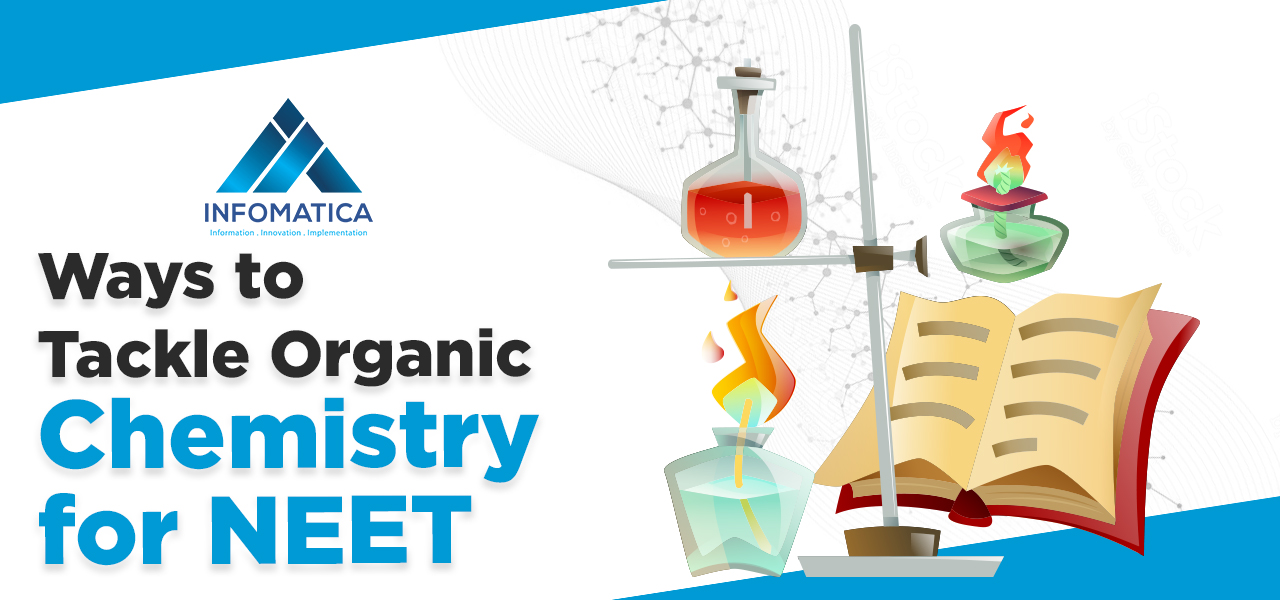How to Tackle Organic Chemistry for NEET?
Organic Chemistry is one of the easiest subjects and once can easily score in NEET. You just need to prepare in the right away; otherwise, all the reaction and bonding will confuse you to death. So, to begin with, you need to understand the basic of Organic Chemistry, and that is to have a profound understanding of the basics of topics like H-bonds, Isomerism, Carbocations, Sigma & Pi Bonds, Hybridization, etc.
As we can already see, there is a lot to remember in Organic chemistry, and this is evident by the various reactions in it and their exceptions. We will suggest that to start understanding the basic concept, you need to refer to the NCERT book at first, which will lay the foundation and then move on to the coaching materials for further knowledge. We have prepared some tips and a guide which will you in dealing with organic chemistry for NEET.
Let’s start by some basic question that each of you must have in mind with regard to preparation for NEET.
Where do you start studying?
The first topic in Organic Chemistry is Isomerism and +/- I effect. They are pretty easy to understand in regards to what is to follow in subsequent chapters. So, our advice to grasp these concepts is by writing them down and practice them again and again. It would also be easy for you to remember if you imagine the reactions, compound, and the mechanism happening in your head.
How to remember these reactions?
Now, I know it is not easy for each of you to learn the reaction. But you need to understand that mugging is helpful only in the short term, but it would be problematic in the long run and especially during the NEET paper. You can start learning the reaction by understanding the relationship between the molecules and why does the reaction take place or not. What are the forces that are driving the molecules, and how does it affect?
Once you understand the rules governing reaction in Organic chemistry, you can decide the output of any reaction. If you keep practicing, then you have an intuition for each reaction you see, and the concept won’t leave your head. This exercise is important if you want to score good marks in Organic Chemistry.
What are some of the important chapters you need to understand?
Classification and Nomenclature
• Isomerism
• Hydrocarbons Alkanes Alkenes and Alkynes
• Haloarenes and phenols
• Alcohol and ether
• Biomolecules and polymers
• Carboxylic acid and its derivatives
• Carbonyl compounds
• Haloalkanes
• Nitrogen-containing compounds
• Nitrogen compound and aliphatic amines
Mechanisms of the reactions
Understanding the mechanism of all reacting is important as it will be used in later chapters. So, it is vital to write the explanation for the reaction in your own words so that you understand it and can remember the mechanism, every time you see the reaction.
Organic Chemistry is a funny subject with various forces acting on the compound, so a certain output can be obtained by multiple mechanisms. So, you need to discuss with your friends and teacher about the various possibilities and learn from those discussions.
Why do you need to practice the reaction over and over again?
Once you understand the mechanism for a certain reaction, you need to be able to apply it somewhere else. The only way to apply those mechanisms is by practicing more. The logic is simple, to apply you need to analyze the reaction and then evaluate what the output will be. You can only master this subject if you practice it again and again until you develop an interest in it.
Why take mock tests?
For two simple reasons, first is that do you remember the mechanism of the reaction in an exam type atmosphere. Second are you calm enough to follow the procedure in an exam? If you are able to do so, then move on to the next topic, if not, then you need to practice even more and maybe in a different way.
Everyone has its own way of learning Organic Chemistry. You can create your own acronym or ways to remember mechanism and output. But you need to understand the concept in any way which you feel comfortable.

